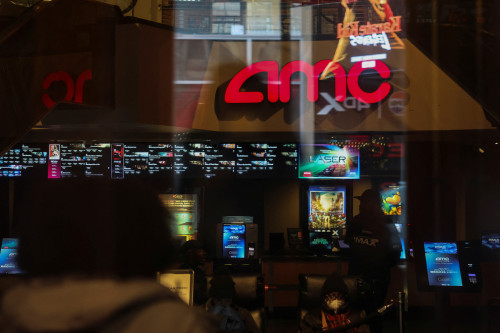 1
1 1
1
By Bhanvi Satija and Patrick Wingrove
(Reuters) -Blue Shield of California plans to stop using most of CVS Health’s pharmacy benefit management services and work with others, including Amazon.com and Mark Cuban’s drug firm, in a bid to reduce drug costs for its insurance plan members.
The non-profit insurer, which serves roughly 4.8 million members, said on Thursday it now plans to tap five different partners for services typically provided by pharmacy benefits managers (PBMs), which negotiate drug prices with manufacturers.
The regional health insurance provider will still retain CVS Caremark for managing specialty drugs, costly medications used to treat complex conditions like cancer and rheumatoid arthritis.
Still, it expects to save $500 million annually in drugs costs once the program is fully launched in January 2025.
Paul Markovich, Blue Shield of California’s CEO, said in an interview that the move had been in the works for some time but was spurred by CVS’s reluctance to cover a much cheaper version of Johnson & Johnson’s cancer drug Zytiga this year.
“We managed to get to the same drug for about $160 a month (from around $3,000) and went to CVS and said we’d like them to sell it, but they told us ‘no’ for about five months until they would,” he said.
Lawmakers and the Federal Trade Commission have been investigating the role of PBMs in rising healthcare costs this year, which Markovich said is needed alongside further scrutiny from employers to mold a fairer pharmacy system for patients.
CVS shares slid over 9%, while rivals that also have PBMs also fell. Cigna Group shares fell 6% and UnitedHealth Group dipped almost 2%, in early trade over investor concerns that other insurers may adopt a similar model.
“Many in the industry will likely be watching this situation closely as managing the five partnerships could prove tricky, but if it (Blue Shield) is successful, we could see additional regionals move more in a similar direction,” said Elizabeth Anderson, analyst at Evercore ISI.
Other analysts highlighted logistical challenges with executing the new model instead of CVS’ full range of PBM services.
Markovich said the insurer had enough lead time and experience working with multiple vendors, hospitals and physicians to manage any logistical challenges.
“I don’t want to trivialize the fact that there’s coordination involved here, but (logistics) is what we do for a living,” he said.
Amazon Pharmacy will provide at-home delivery of prescription drugs as well as upfront pricing, while Mark Cuban’s Cost Plus Drug Company will provide access to generic drugs, Blue Shield said.
CVS said it was looking forward to “providing care for Blue Shield of California’s members who require complex, specialty medications – as we have for nearly two decades.”
The change, however, marks another blow to CVS Caremark, which is set to lose the contract to manage Centene’s $40 billion annual pharmacy needs from next year.
Blue Shield of California’s other partners include privately held Abarca for processing claims related to prescription drugs, while smaller PBM Prime Therapeutics will work to negotiate savings with drugmakers.
(Reporting by Manas Mishra, Mariam Sunny and Bhanvi Satija in Bengaluru and Patrick Wingrove in New YorkEditing by Shweta Agarwal, Pooja Desai, Krishna Chandra Eluri, Frances Kerry and David Gregorio)